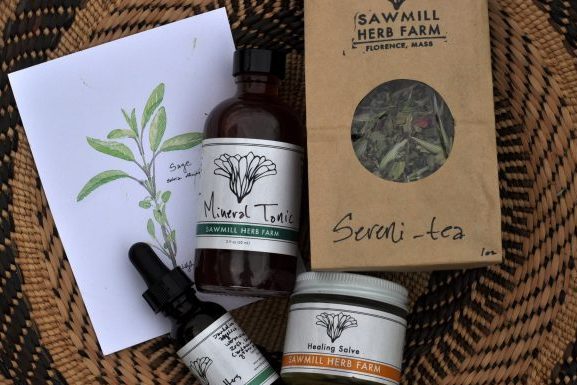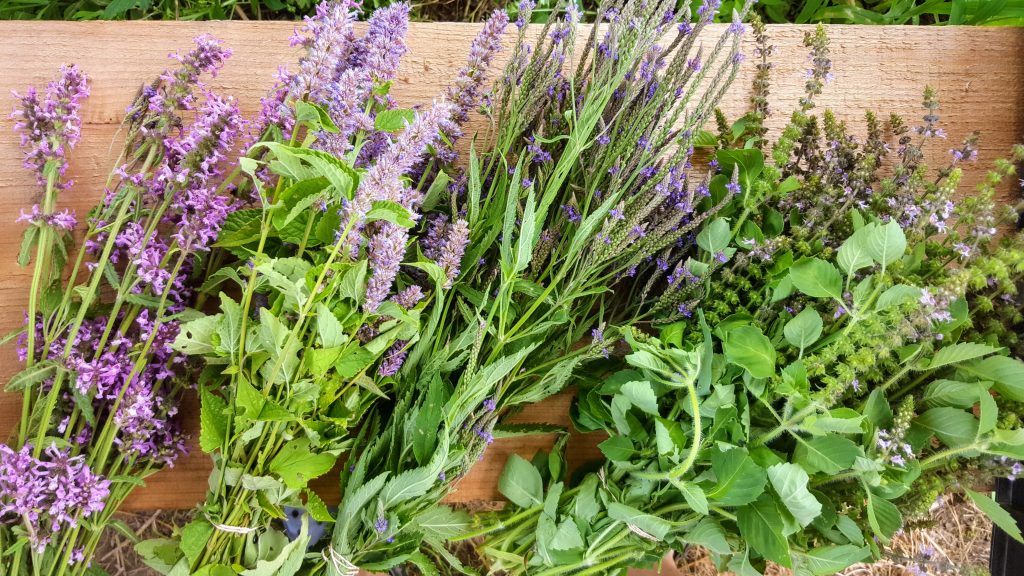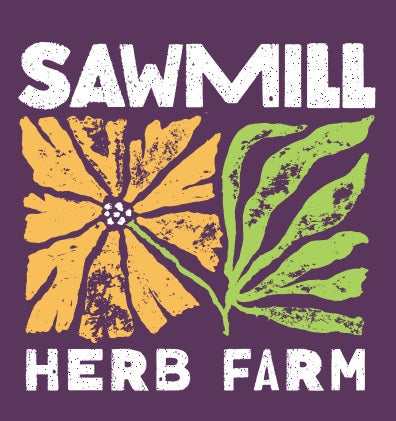Herb Profile: Lobelia
Lobelia Lobelia inflata, Lobeliaceae
Lobelia is an annual plant that can grow up to 3 ft tall, with toothed leaves, and blue or white flowers in July and August. Lobelia has a common name of Pukeweed, and as it suggests is best known for its emetic (stimulating vomiting) qualities. As a bronchodilator (a drug that causes widening of bronchi), lobelia is used primarily in the treatment of asthma and whooping cough. It is also an antispasmodic, which relaxes muscles and reduces cramps. Historically it has been used to treat spasms, cramps and seizures, as well as coughs. Most herbalists today prefer it for muscle cramps, used internally as a tincture, or topically as a liniment. Because of its emetic qualities, lobelia has been used as an antidote to poison when used in large doses.
Lobelia has an alkaloidal content similar to that of tobacco but no nicotine, making it a useful remedy for smoking cessation. Herbalist Guido Mase suggests that lobelia has an effect of that of nicotine so powerful that it can be used as a substitute during the initial 3-7 days of nicotine withdrawal (here is a link to the full article). If used as a tincture for this manner, Mase suggests a tincture of 1 part lobelia to 9 parts oat tops, taken at a dosage of 60-90 drops as needed, not exceeding more than 4 times an hour. A smoking blend can also be used to aid in tobacco addition.
Preparations:
Parts used are herb (leaf, flower, and stalk), root, and seed. It can be dried for use by infusion, or extracted fresh in alcohol. Herbalist Matthew Wood suggests that it’s much better used with other herbs (he says, “it likes to herd them around”). It can be used safely externally as a rub by steeping it in rubbing alcohol, or making an oil with the fresh plant.
Cautions: Lobelia is not to be eaten. Highly recommended to low dose (1-2 drops) as high doses can cause nausea and induce vomiting. In large doses it can also be a hallucinogen and slow respiration. Lobelia should not be used long term.
🌿 Grow, Harvest & Learn with Us This Season! 🌿
Whether you're looking to fill your apothecary with vibrant, fresh herbs, start your own garden with strong, healthy seedlings, or deepen your knowledge of herbal medicine, we've got you covered.
Join our Fresh Herb CSA to receive weekly bundles of medicinal and culinary herbs, plus guidance on how to use them. Pre-order seedlings to get a head start on your herb garden with our carefully grown plants. Explore our herbal education programs to learn hands-on medicine-making, plant connection, and more.
Looking for high-quality, certified organic herbs year-round? We also offer dried herbs and small-batch tea blends, thoughtfully grown and harvested to bring you the best in herbal wellness.
Be part of a community that values resilience, self-sufficiency, and deep connection to the land. 💚
Sign up for the CSA, pre-order seedlings, shop our dried herbs and tea blends, or explore our herbal education offerings today!
Disclaimer
These statements have not been evaluated by the Food and Drug Administration. This product is not intended to diagnose, treat, cure, or prevent any disease. For educational purposes only. We do not endorse the websites linked to in the resources and have not extensively reviewed all the information on external pages for accuracy. Everyone reacts differently to herbs and we do not attempt to be completely inclusive in the information and contraindications for each herb. Trust your intuition if something is not feeling right for you.
Shop our Apothecary and Nursery
-

Apothecary Products
Nourish yourself and your family with a certified organic farm grown apothecary ...
-

Nursery Products
Grow your garden. We grow certified organic herb, flower and vegetable starts...


